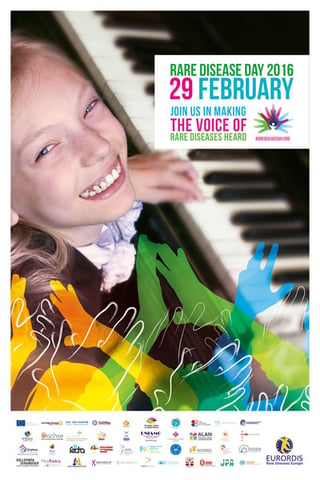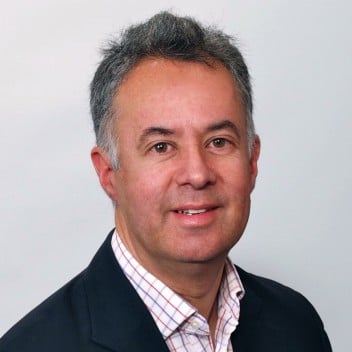- Privacy Policy
- Terms & Conditions
- Contact us
- ©Isabel Healthcare 2025
Rare Diseases Day 2016 - Would you know if you had one?
 This week saw Rare Disease Day on the 29th February. The purpose of this day is to raise awareness around the world, both for the public and also industry professionals, of the rare diseases that affect around 30 million people in the US alone. That’s 10% of Americans. Doesn’t sound so rare when you put it that way, does it?
This week saw Rare Disease Day on the 29th February. The purpose of this day is to raise awareness around the world, both for the public and also industry professionals, of the rare diseases that affect around 30 million people in the US alone. That’s 10% of Americans. Doesn’t sound so rare when you put it that way, does it?
In the US, a rare disease is classified when it affects less than 200,000 people in a certain rare disease group. There are a lot of facts that the general public don’t know that relate to all rare diseases, and they could mean an early diagnosis and better outcomes if someone you know has one of the diseases on the list of between 6,000 and 7,000. A rare disease is often not picked up in initial diagnoses, as symptoms may be more common in other conditions, or may not even appear at all, so it’s never more important to #knowyoursymptoms and understand how and when to think about rare diseases.
70% of rare diseases are genetic
Do you know about that condition Aunt Julie had when you were 7? “Oh, it was a really rare thing, affects hardly anyone.” Most people take notice when a family member has breast cancer or diabetes, as we all know these can run in the family and we realise the impact a condition like these can have on our lives. However, if the disease is rare in the first place, we tend not to think about the implications of the condition on the extended family. The truth is that if your Aunt had a rare disease, it’s likely to pop up again in the family somewhere along the line, and knowing what to look out for could save a loved one’s life in the future. Research diseases and conditions your relatives have suffered, and always have them in the back of your mind. When someone in the family presents with any of the symptoms, or no one is sure what’s wrong with them, you can safely rule out these possibilities with a doctor early on, or get an early diagnosis and more importantly timely treatment.
50% of all rare diseases affect children
In many ways, children are more robust than adults - their young bodies have a bounce-back ability that adults don’t when suffering minor illnesses like a cold or stomach bug. However, they are also very vulnerable to more serious diseases, and rare diseases are certainly no exception. Of the people affected by rare diseases, half of them are children. 30% of all rare disease diagnoses end a child’s life before they are 5 years old. Isabel Healthcare was started because of a misdiagnosis of chicken pox - Isabel in fact had the rare disease Necrotising Fasciitis, and this missed disease was nearly fatal. If you have children, you’ll know how scary and worrying it is when that child is unwell. It’s even more scary if you don’t catch a rare disease in time, so make sure you discuss all possibilities with your doctor when your child has symptoms.
Isabel could save your life
The Isabel symptom checker for patients and the Isabel DDSS for doctors are two tools that can help uncover a rare disease when it strikes. A differential diagnosis helps doctors flag up all diseases it could be, rather than the one common one it usually is. If you're interested, you can see here how Isabel uncovers rare diseases for doctors. Sometimes, it’s just a simple test to rule out the more serious rare diseases, so if you have any doubts, run your own or your child’s symptoms through the Isabel symptom checker, and discuss the results with your doctor. They can then put you at ease by either running the appropriate tests or explaining why a certain diagnosis can be ruled out. This two way conversation to arrive at a diagnosis is what Isabel is all about, as the patient knows their own body better than anyone; go with your instincts and get involved in the diagnostic process.
Rare Diseases do not have enough support or awareness
It’s important for you to personally understand the rare diseases that could affect you or your child, and it’s also important to know how to spot or rule out those rare diseases. It is absolutely paramount, however, that rare diseases get more exposure and support globally. Over 50% of the rare diseases known have no foundation or charity supporting and researching their causes, symptoms, effects and treatments. This means if you get one of these 350,000 diseases, there will be little treatment and little information on the condition, and this can be devastating. There are fewer than 400 FDA approved treatments for the entire rare disease catalog. To put this in perspective, there are over 200 treatments for cancer alone. So if you know about a rare disease, don’t keep it to yourself! Spread the awareness, and help physicians and researchers discover more about the disease and its treatments.
If you become ill, run your symptoms through the Isabel symptom checker - it takes minutes and could save your life.

Jason Maude
Jason is the CEO and Co-founder of Isabel. Prior to co-founding Isabel, Jason spent 12 years working in finance and investment banking across Europe. His daughter, Isabel, fell seriously ill following a misdiagnosis in 1999 and this experience inspired Jason to abandon his city career and create Isabel Healthcare Ltd.
Subscribe Here!
Recent Posts
Isabel DDx Companion with ChatGPT Integration - to help you diagnose even faster
At Isabel Healthcare, we’ve always been driven by one goal: to make clinical reasoning faster,..Virtual Triage: Do more questions lead to better patient outcomes?
One of the common misconceptions related to virtual triage / symptom checker tools is that the more..List Of Categories
- Differential Diagnosis Decision Support
- Differential diagnosis
- Symptom Checker
- Symptoms
- Medical Error
- Patient Disease Information
- Disease
- Clinical Decision Support
- Diagnostic Decision Support
- Isabel 1 Minute Read
- Diagnosis Error
- Diagnosis Skills Cases
- Healthcare Informatics
- Clinical Reasoning
- Evidence-based Medicine
- Medical Education
- Patient Engagement
- Symptom Triage
- Nurse Practitioner Education
- Nursing Decision Support
- Partnership
- Public Health
- COVID-19
- EHR
- Patient Empowerment
- Patient Safety
- rare disease

Start your FREE Trial today
Try the Isabel Pro DDx generator for 30-days - no payment card details required.




